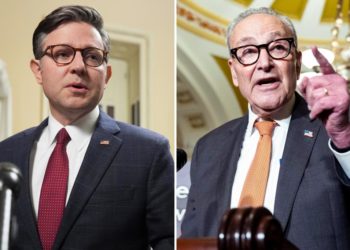Rabbi Shira Stutman, the founder of the Sixth & I Historic Synagogue in Washington, showed up midmorning on Thursday at the Capital Jewish Museum to pray and mourn.
It was something she just needed to do, she said, after two Israeli Embassy aides — a young couple — were shot and killed the night before while leaving the museum, where the American Jewish Committee was hosting a reception for young diplomats.
Several hundred thousand people compose the Jewish community in the Greater Washington area, including Northern Virginia and suburban Maryland, making it one of the biggest Jewish population centers in the country. Yet it is a very close community, the rabbi said.
“This could have been one of our kids,” Rabbi Stutman, who lives in Washington but now leads a congregation in Colorado, said of the shootings.
For many young people, politically active or not, Wednesday night’s reception at the Capital Jewish Museum would have been a networking opportunity — or even a chance to find a potential husband or a wife, Rabbi Stutman said. Such events are very popular in the Washington area among young Jewish people who want to socialize while supporting a cause.
But no one thought the night would end as it did. Not here. Not in the nation’s capital.
Ron Halber, chief executive of the Jewish Community Relations Council of Greater Washington, called the killings “a political assassination” and “the nightmare that we’ve all been afraid of.”
He said he had always told friends that he was lucky to live in the Washington area because violence against the Jewish community was uncommon there.
“We haven’t, in 50, 60 years, seen a major incident,” Mr. Halber said. “Unfortunately, that record has been broken now.”
Jewish organizations in the area are still trying to process what happened, some leaders say, and several expect to hold official vigils for the couple.
Juliet Macur is a national reporter at The Times, based in Washington, D.C., who often writes about America through the lens of sports.
The post For Washington’s Jewish community, the killings are ‘the nightmare that we’ve all been afraid of.’ appeared first on New York Times.




